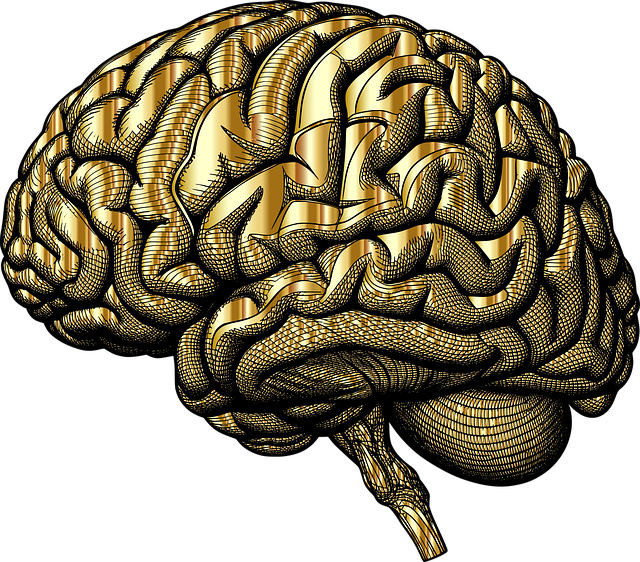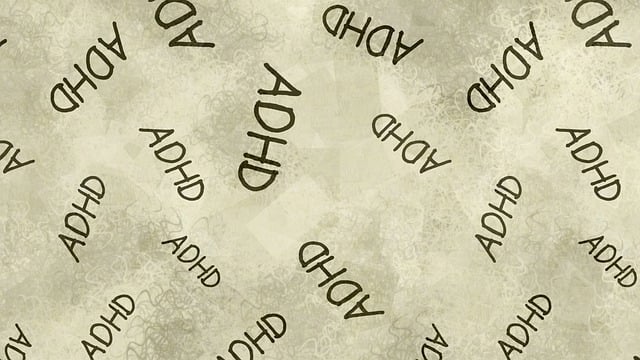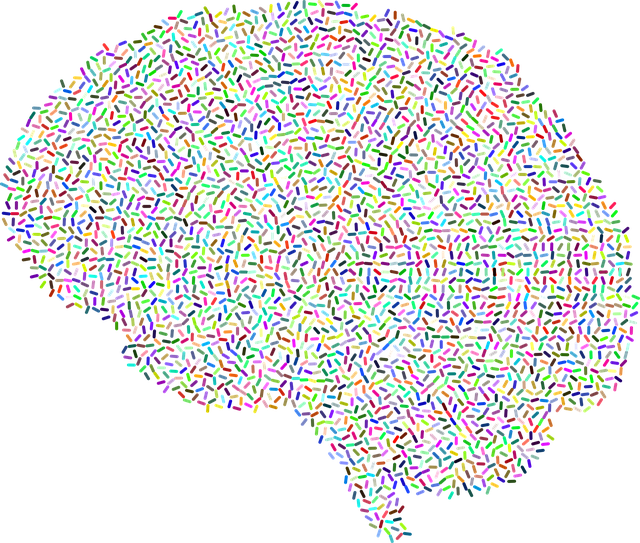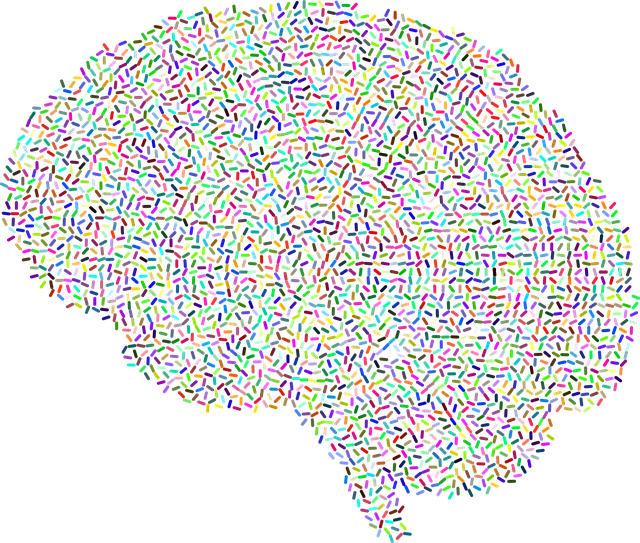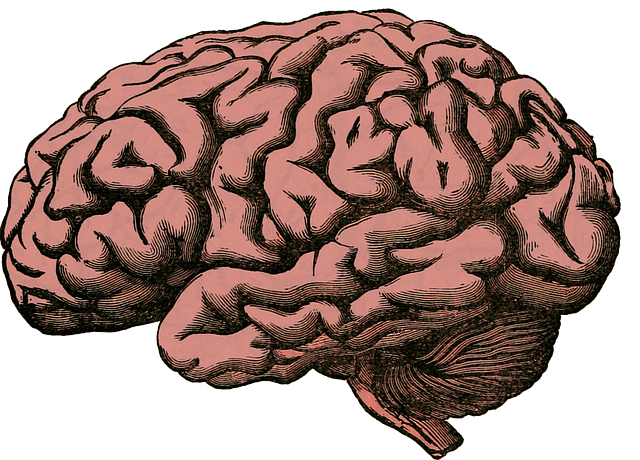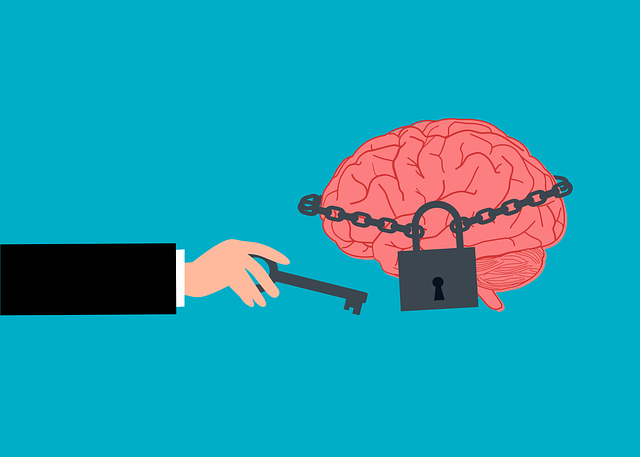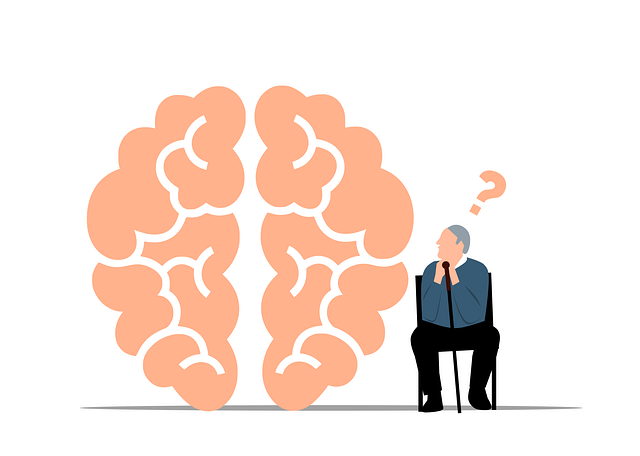Understanding mental health data involves integrating diverse sources like clinical notes, survey responses, physiological measurements, and demographic info from various settings (traditional healthcare, online platforms, mobile apps). Lone Tree Acceptance and Commitment Therapy (ACT) centers utilize client intake forms, progress notes, and feedback surveys for valuable insights into intervention effectiveness. Cultural Competency Training ensures equitable data collection while Self-Awareness Exercises capture nuanced client experiences, enhancing interpretation by mental health professionals. Effective analysis combines statistical rigor with cultural sensitivity, addressing biases through training and risk management planning. Robust security measures protect privacy, and standardization tools ensure consistent evaluations, considering ethical considerations like algorithm bias in crisis interventions. Leveraging data for personalized interventions, such as ACT techniques, enhances therapy sessions and supports targeted Mental Wellness Coaching Programs for improved outcomes.
Mental health data analysis is a burgeoning field, crucial for understanding and enhancing therapeutic interventions. This article explores various facets of this process, from understanding the collection and sources of mental health data to specific techniques for interpretation. We delve into the application of Acceptance and Commitment Therapy (ACT) in data analysis and discuss ethical considerations. By examining challenges and leveraging insights, we aim to revolutionize therapy and support services, especially with the potential offered by Lone Tree Acceptance and Commitment Therapy.
- Understanding Mental Health Data: Collection and Sources
- The Role of Acceptance and Commitment Therapy (ACT) in Data Analysis
- Techniques for Effective Mental Health Data Interpretation
- Challenges and Ethical Considerations in Mental Health Data Analysis
- Applying Insights: Enhancing Therapy and Support Services with Data
Understanding Mental Health Data: Collection and Sources

Understanding Mental Health Data involves recognizing that it’s a multifaceted landscape encompassing various sources and collection methods. This data includes clinical notes from therapy sessions, survey responses about mental well-being, physiological measurements like heart rate variability, and demographic information. For instance, Lone Tree Acceptance and Commitment Therapy (ACT) centers can gather rich data through client intake forms, treatment progress notes, and feedback surveys, providing insights into the effectiveness of their interventions.
The sources of mental health data are diverse, ranging from traditional healthcare settings to online platforms and mobile applications. Healthcare Provider Cultural Competency Training plays a crucial role in ensuring that data collection processes respect cultural differences and promote equitable care. Self-Awareness Exercises and Emotional Intelligence tools can also be integrated into data gathering methods to capture nuanced aspects of client experiences and emotional states, enhancing the interpretation capabilities of mental health professionals.
The Role of Acceptance and Commitment Therapy (ACT) in Data Analysis

In the realm of mental health data analysis, Acceptance and Commitment Therapy (ACT) stands out as a transformative approach that goes beyond traditional therapy models. This innovative method encourages individuals to embrace their experiences rather than fighting them, fostering a deeper understanding of one’s thoughts and emotions. By promoting psychological flexibility, ACT enables clients to navigate life’s challenges with greater resilience, making it an invaluable tool in the digital age where mental health data is increasingly collected and analyzed.
The integration of ACT into data analysis provides a robust framework for interpreting trends and patterns related to emotional intelligence and stress reduction methods. This approach allows researchers and practitioners to gain insights into effective interventions that enhance mental health awareness. By focusing on values-guided behavior, ACT empowers individuals to lead more meaningful lives, ultimately contributing to the overall well-being of communities, as evidenced by its growing popularity in various therapeutic settings, including Lone Tree Acceptance and Commitment Therapy practices.
Techniques for Effective Mental Health Data Interpretation

Effective mental health data interpretation requires a multifaceted approach that combines robust statistical methods with a deep understanding of human behavior and cultural contexts. One powerful technique gaining traction in this field is Lone Tree Acceptance and Commitment Therapy (ACT), which emphasizes psychological flexibility, acceptance, and commitment to values-driven actions. ACT can aid in uncovering hidden patterns within mental health data, offering valuable insights into patient experiences and treatment responses.
Moreover, healthcare providers should prioritize Cultural Competency Training to ensure they can accurately interpret data across diverse populations. This training equips professionals with the skills to navigate cultural nuances and biases that might influence data, promoting more equitable and effective care. Additionally, Risk Management Planning for Mental Health Professionals is vital to mitigate burnout, a significant barrier to accurate interpretation and analysis. By integrating strategies for self-care and work-life balance, mental health professionals can maintain focus and objectivity when interpreting complex data, ultimately enhancing patient outcomes.
Challenges and Ethical Considerations in Mental Health Data Analysis

The field of mental health data analysis faces several unique challenges and ethical considerations. One primary concern is ensuring the privacy and confidentiality of individuals’ sensitive information. As data collection methods become more sophisticated, it’s crucial to implement robust security measures to protect personal details, especially when dealing with conditions like depression, anxiety, or post-traumatic stress disorder (PTSD). For instance, a study utilizing Lone Tree Acceptance and Commitment Therapy techniques might collect detailed patient narratives, requiring strict anonymization protocols to maintain trust.
Additionally, the subjectivity inherent in mental health assessments presents an ethical dilemma. Interpretations of behavioral data can vary widely among professionals, and this variability may impact treatment plans. Standardizing data collection and employing validated measurement tools can mitigate this challenge. For example, integrating Mental Wellness Journaling Exercises or Inner Strength Development activities into data analysis routines could provide structured insights, ensuring consistency in evaluation. Moreover, ethical considerations extend to the potential for bias in algorithms used for crisis intervention (Crisis Intervention Guidance)—a critical aspect of modern mental health support systems.
Applying Insights: Enhancing Therapy and Support Services with Data

In the realm of mental health care, leveraging data for analysis and interpretation holds immense potential to transform therapeutic practices. By applying insights gleaned from this process, healthcare professionals can significantly enhance therapy sessions and support services. For instance, Lone Tree Acceptance and Commitment Therapy (ACT) benefits from data-driven approaches to tailor interventions more effectively. This involves identifying patterns within patient responses, which allows therapists to adjust their communication strategies and focus on specific emotional regulation techniques.
Moreover, such analysis enables the development of targeted Mental Wellness Coaching Programs. By understanding trends and common challenges among patients, coaches can design personalized programs that address core issues. Incorporating Communication Strategies and Emotional Regulation techniques into these programs ensures they remain relevant and impactful, ultimately contributing to improved mental wellness outcomes.
Mental health data analysis plays a pivotal role in understanding and addressing psychological well-being, especially through innovative approaches like Acceptance and Commitment Therapy (ACT). By employing effective interpretation techniques and navigating ethical challenges, professionals can harness the power of data to enhance therapy and support services. As seen with Lone Tree Acceptance and Commitment Therapy, integrating data insights enables more personalized and impactful interventions, ultimately fostering better mental health outcomes for individuals in need.
